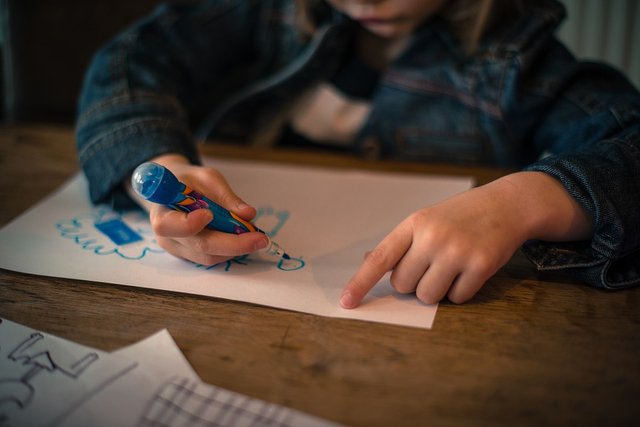Are Your Kids Morally Intelligent?
I was on the phone with my friend Maria recently and, pinched for time, I hurried the conversation to a close by telling her I was in the bathroom about to put hair color on my roots. This was a lie. I was actually a few feet from the bathroom door on my way to put hair color on my roots. My 6-year-old overheard and admonished me. This small event got me thinking about moral intelligence in children.

source
First of all, at age six, children are concrete thinkers, and my daughter's bid for honesty might actually have been a bid for accuracy, as kids begin to leave childhood's state of magical thinking and search for reality checks. But her observation was also representative of the beginnings of her formation of moral intelligence.
Moral intelligence involves honesty, integrity, responsibility, compassion, and forgiveness. It used to be taught mostly by religious institutions, but as people leave traditional religions, how do parents teach morals? The answer is this: We teach morals partly by behavior shaping (rewards and punishments), and mostly by example.
When a child cheats on a test or steals from a friend's backpack, they are testing rules and boundaries. If we ignore the behavior and fail to create logical consequences -- say, supporting the teacher in giving an F test grade, or making the child apologize and earn enough money to replace the stolen object -- we are failing to teach our children moral intelligence. Most damaging to children are parents whose own feelings of shame about their children's behavior make them turn a blind eye rather than raise their head up and drag their kid into the principal's office, or call a fellow parent to report a transgression. Ignoring and not acting on the small "immoral" behaviors is setting your child up for real-world consequences that can cause big damage. Imagine if your teen decided to test the no-shoplifting rule by pocketing a lip gloss -- just one month after her 18th birthday. The result can be a criminal record for life that must be reported on every job application. This kind of stuff happens all the time.
But more importantly, if we do not live moral lives ourselves, our children will ignore our teachings. Truly moral behavior is rarely given opportunities to live in black or white situations. The real test of one's morals are the gray areas of life -- whether to run that yellow light, whether to tell a cashier that she gave you slightly too much change, whether to put your shopping cart back, whether to let a restaurant manager know that you weren't charged for your refill, whether to litter when no one is looking, whether to take that little extra deduction on your tax return. I could go on and on. The gray areas of moral decisions are where the meat of our life's teachings are. Children are little sponges, and even if we think they don't know, trust me, some part of their psyche is eating your behavior up.
Besides trying to make fair and honest decisions, the next very important part of moral teaching is responsibility. We all make mistakes. In the busy hustle of mommy life, we sometimes slip up and take shortcuts that might be considered slightly immoral. People's feelings might be hurt by our haste and multitasking behaviors. When this is discovered, we owe it to our kids to take responsibility for our actions. If they can trust that we can show humility, apologize, or even forgive another, they will internalize that model for themselves. This is perhaps the greatest gift a parent can give a child -- the demonstration of emotions like shame and embarrassment without a loss of self-esteem. It takes a self-loving person to stand up and ask for forgiveness. This is who I hope my children will be.
So, Maria, I'm sorry I lied to you on the phone last week. But my hair did get done on time. Forgive me?